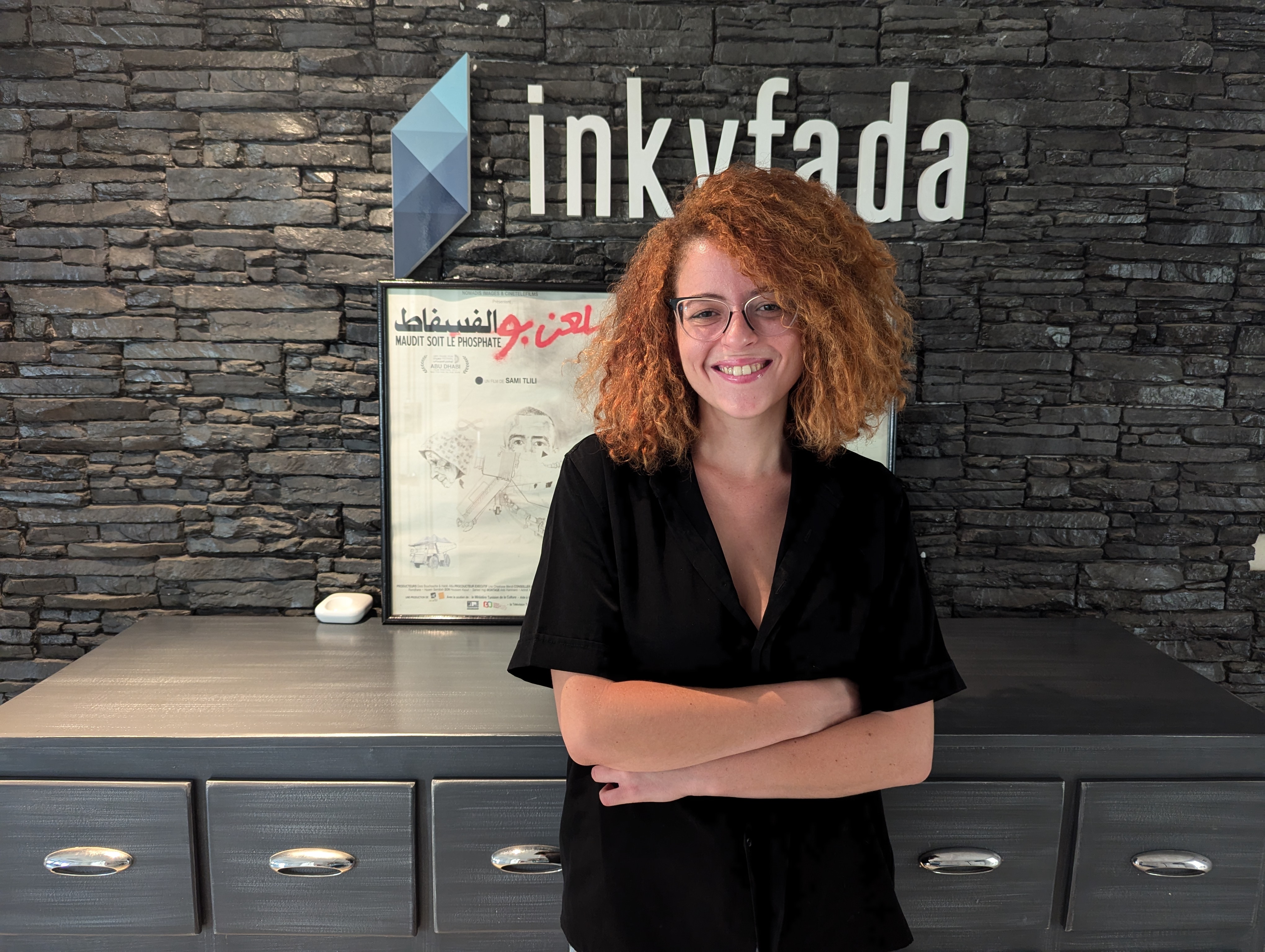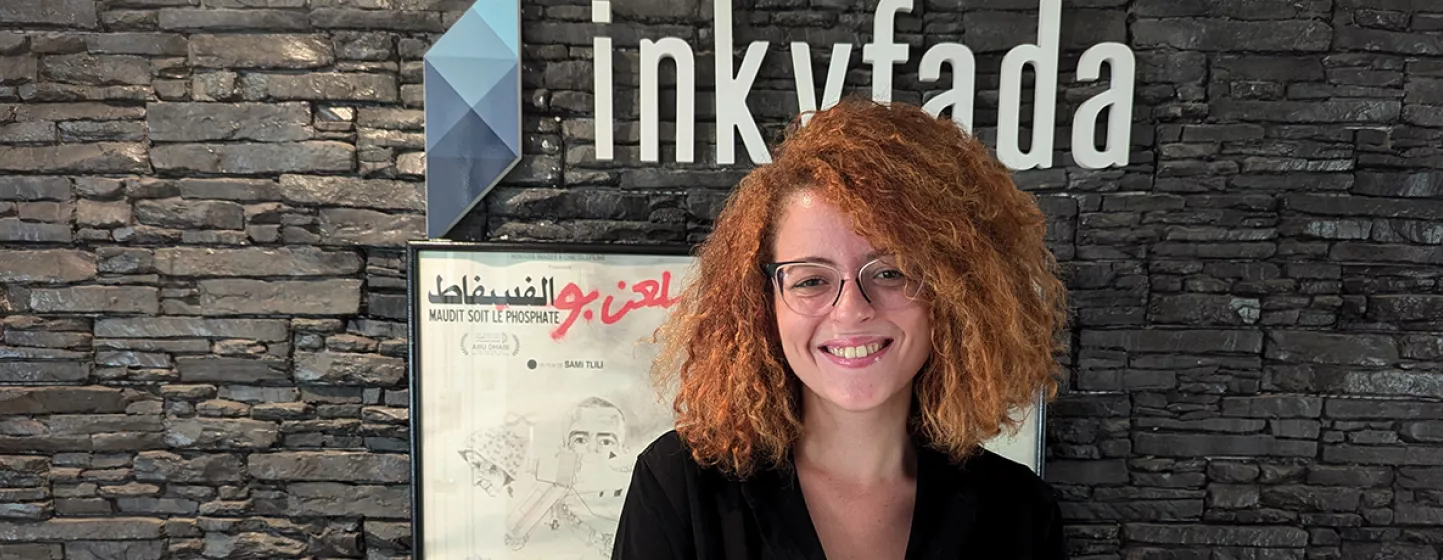Linda Kaboudi, a journalist on the ball for inequality
At 28 years of age, the Tunisian, Linda Kaboudi, has firmly established beliefs. Covering the 2024 Paralympic Games in Paris is an opportunity for her to bring these athletes out of the shadows and continue to fight injustice. Portrait.
When it comes to inequality, Tunisia's Linda Kaboudi seems to have always been on the ball: "As a child, I couldn't control my emotions about injustice!” An "instinct, a rage" shared by the strong women in her family. "Fatma, her grandmother, was a rebel, a pure feminist who was very intelligent, but hadn't been given an opportunity to study. She strongly encouraged her children and grandchildren to study and defend women. Linda also grew up near the headquarters of Ennahda (editor’s note: Islamic party). We took a stand against them and chased them out of our neighbourhood a bit!", recalls her mother, Houyem Limame Kaboudi.
Personal nature, family influence, social climate... Linda Kaboudi gradually developed her own personality: "I grew up in a dictatorship without knowing it, and then when I was 15, in 2011, at the time of the Revolution, I was able to express what I wanted to change about women's rights and the rights of minorities.” While combating prejudice, Linda became involved in a number of associations, including Amnesty International, and took those around her by surprise when she decided to study literature after attending an elitist high school, an ideal springboard for studying science. "All of us, or almost all of us, studied economics in our family. Linda made a bold choice, but in the end it was an almost natural one, as she is committed to what is fair and right and loves the great debates" points out Nadia Kaboudi, her aunt.
Giving a voice to the voiceless
Journalism was therefore a likely option. After graduating with a degree in French language, literature and civilisation, Linda embarked on a master's degree in literature, languages and art history. Her love for words led her to become a translator in 2020, and then a reporter for Inkyfada, an independent media outlet committed to freedom of expression in Tunisia: "Journalism allows me to continue to fight for what is right. I like the human contact and being able to give a voice to people who don't have the place they deserve in society.”


As part of the Paris Médias 2024 project, Linda Kaboudi will be covering the forthcoming Paralympic Games for her media outlet. Visibly a little overwhelmed by the idea of rubbing shoulders with more experienced journalists, Linda is also impatient: "I'm already thinking about the topics I'm going to cover. In Tunisia, Paralympic athletes do better than able-bodied athletes, but they have less visibility... I'd also like to include women in my articles, because even though women's sports are well-developed in Tunisia, it is still difficult for female journalists to cover disciplines traditionally associated with men.” If we pitch the subject of inequality, our top striker, Linda Kaboudi, seems more ready than ever to find the back of the net to overcome prejudice.
In 10 years' time...
Houyem Limame Kaboudi, Linda's mother, has not quite given up on her dream of seeing her daughter "become a doctor of something. I'm going to encourage her to enrol for a PhD in literature or art history. She's got the skills she needs!”. In ten years' time, her aunt, Nadia, believes that her niece will still be a journalist, busy "changing the world with her articles and her truth". Haïfa Mzalouat, her former editorial manager at the French version of Inkyfada, gives her view: "I can see her writing more long-form human-interest articles on gender and individual freedoms.” Zeïneb Ben Ismail, Linda Kaboudi's colleague, also believes that she will continue her work: "Linda sparkles when it comes to feminism and equal rights. In ten years' time, I can see her as a columnist for a media outlet that is very committed to these values, probably in France. She is a good teacher and could supervise trainees.”
Linda herself thinks that she will do a PhD and sees her future in journalism: "I'd like to write long-form articles or help trainees write and check their articles. Learning from one another is something I really enjoy!” In ten years' time, this mutual learning approach across society will most probably still be relevant: "My commitment to human rights and to women in particular will always be a top priority for me. Will I leave? This will depend on the situation in Tunisia. Sometimes I want to leave, but I don’t think I will ever abandon my own country...".
Portrait by Emmanuel de Solère Stintzy (https://www.journalistesmediateurs.com/).

